Tips for Practicing Music at Home
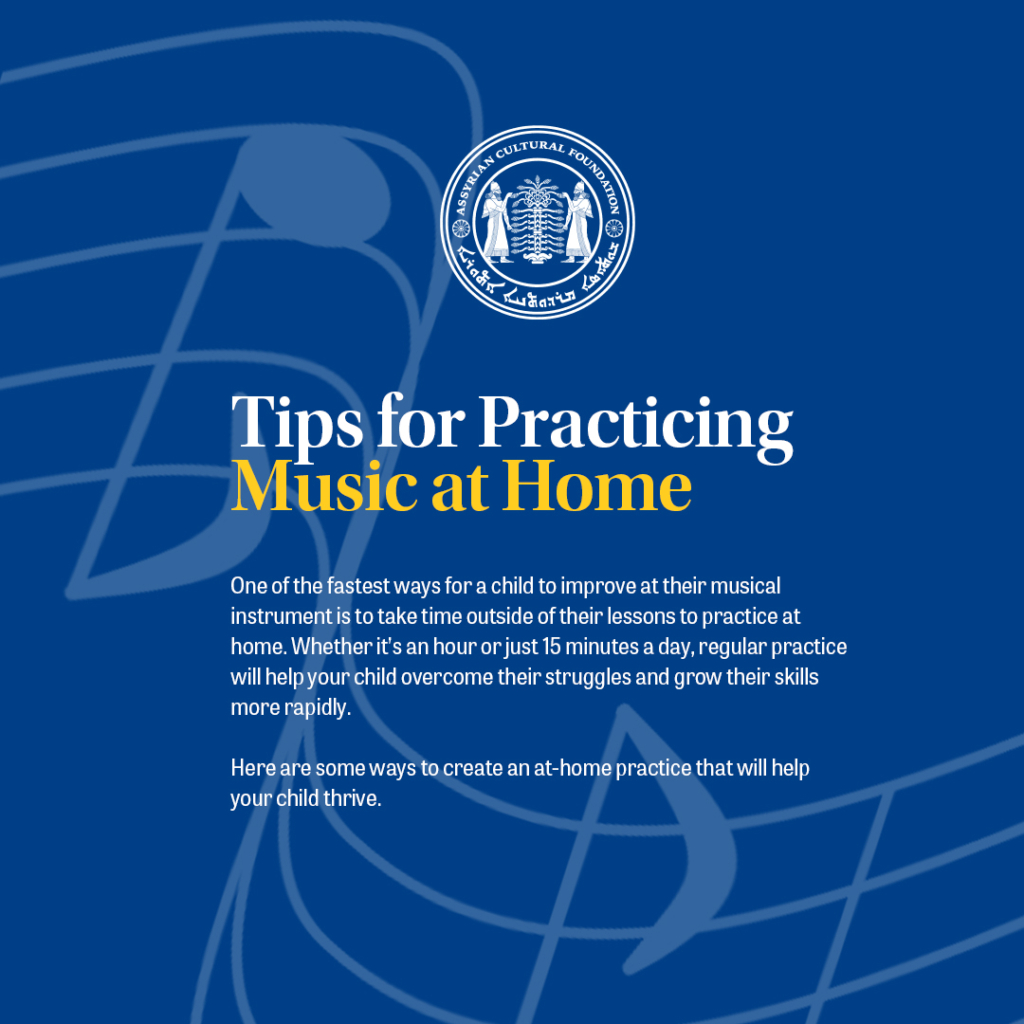
One of the fastest ways for a child to improve at their musical instrument is to take time outside of their lessons to practice at home. Whether it’s an hour or just 15 minutes a day, regular practice will help your child overcome their struggles and grow their skills more rapidly.
Here are some ways to create an at-home practice that will help your child thrive.
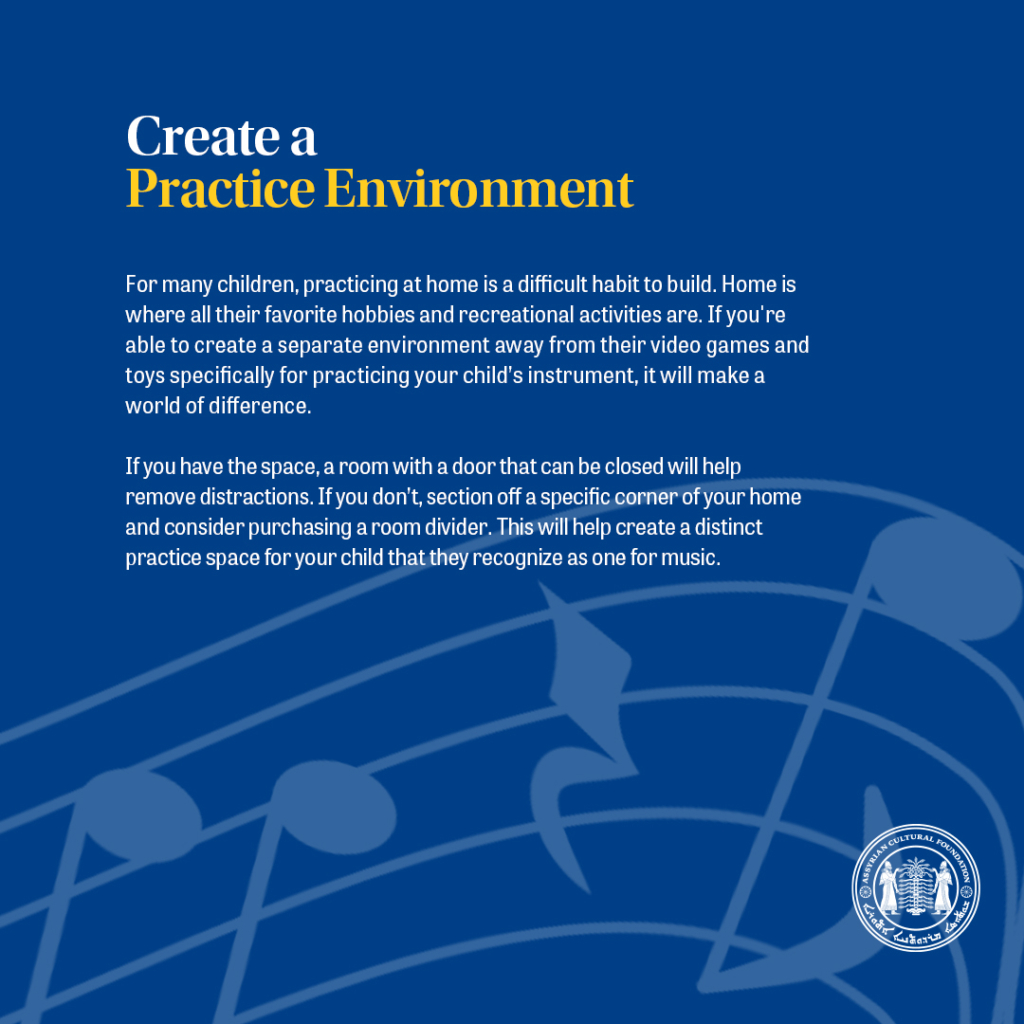
Create a practice environment
For many children, practicing at home is a difficult habit to build. Home is where all their favorite hobbies and recreational activities are. If you’re able to create a separate environment away from their video games and toys specifically for practicing your child’s instrument, it will make a world of difference.
If you have the space, a room with a door that can be closed will help remove distractions. If you don’t, section off a specific corner of your home and consider purchasing a room divider. This will help create a distinct practice space for your child that they recognize as one for music.
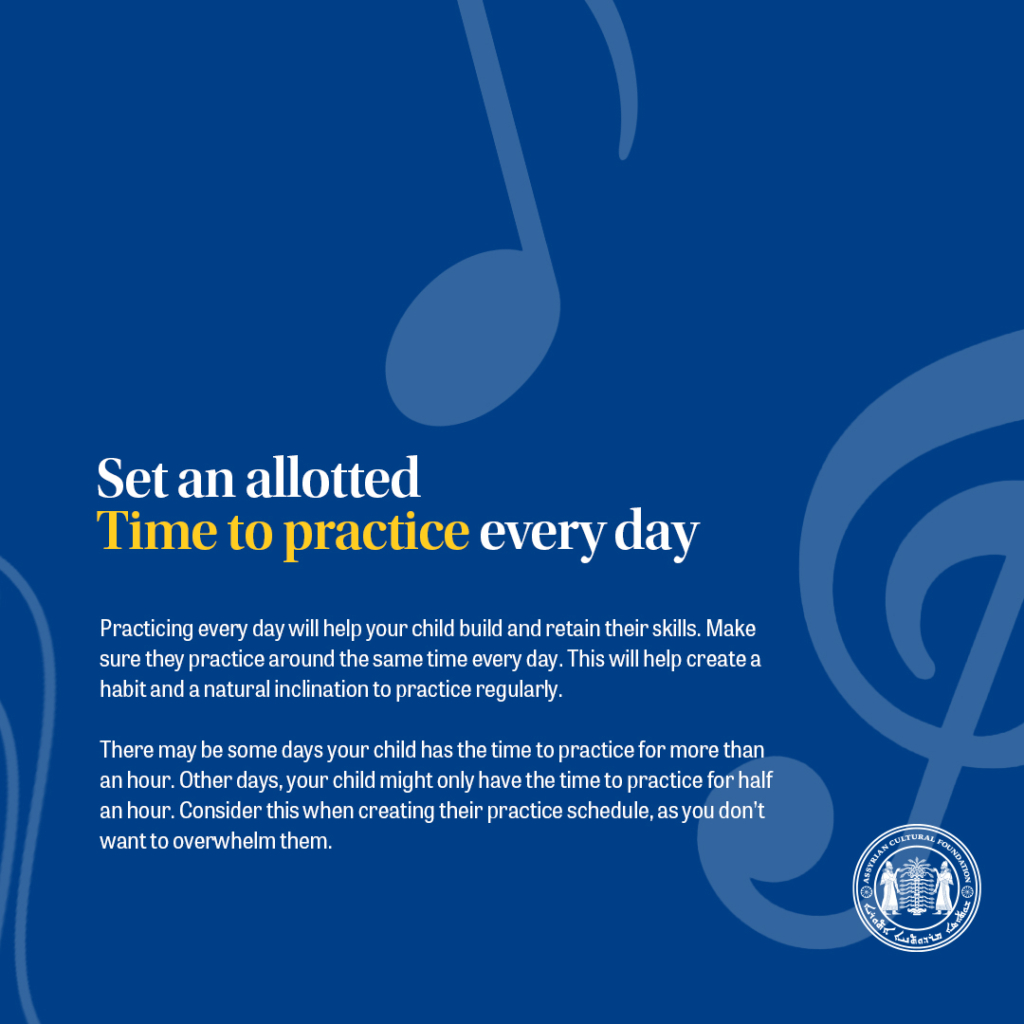
Set an allotted time to practice every day
Practicing every day will help your child build and retain their skills. Make sure they practice around the same time every day. This will help create a habit and a natural inclination to practice regularly.
There may be some days your child has the time to practice for more than an hour. Other days, your child might only have the time to practice for half an hour. Consider this when creating their practice schedule, as you don’t want to overwhelm them.
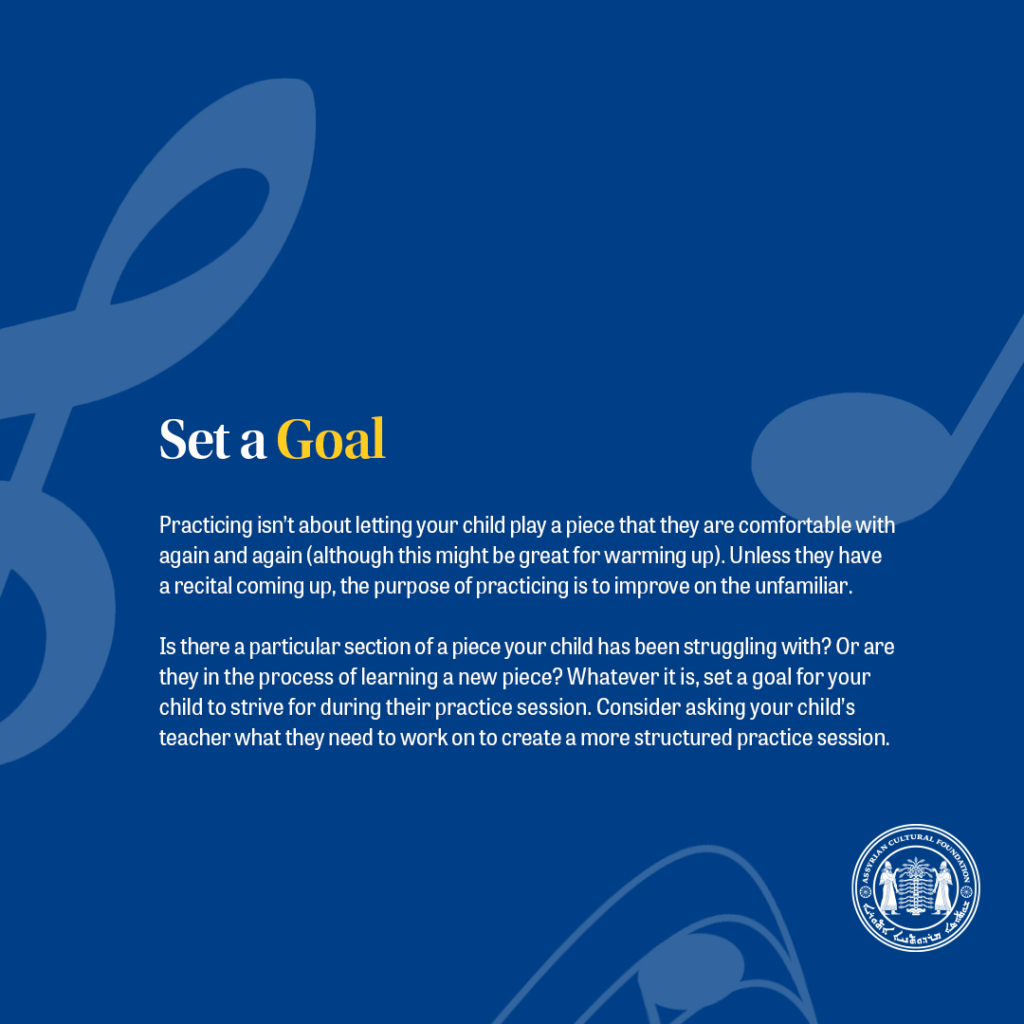
Set a goal
Practicing isn’t about letting your child play a piece that they are comfortable with again and again (although this might be great for warming up). Unless they have a recital coming up, the purpose of practicing is to improve on the unfamiliar.
Is there a particular section of a piece your child has been struggling with? Or are they in the process of learning a new piece? Whatever it is, set a goal for your child to strive for during their practice session. Consider asking your child’s teacher what they need to work on to create a more structured practice session.
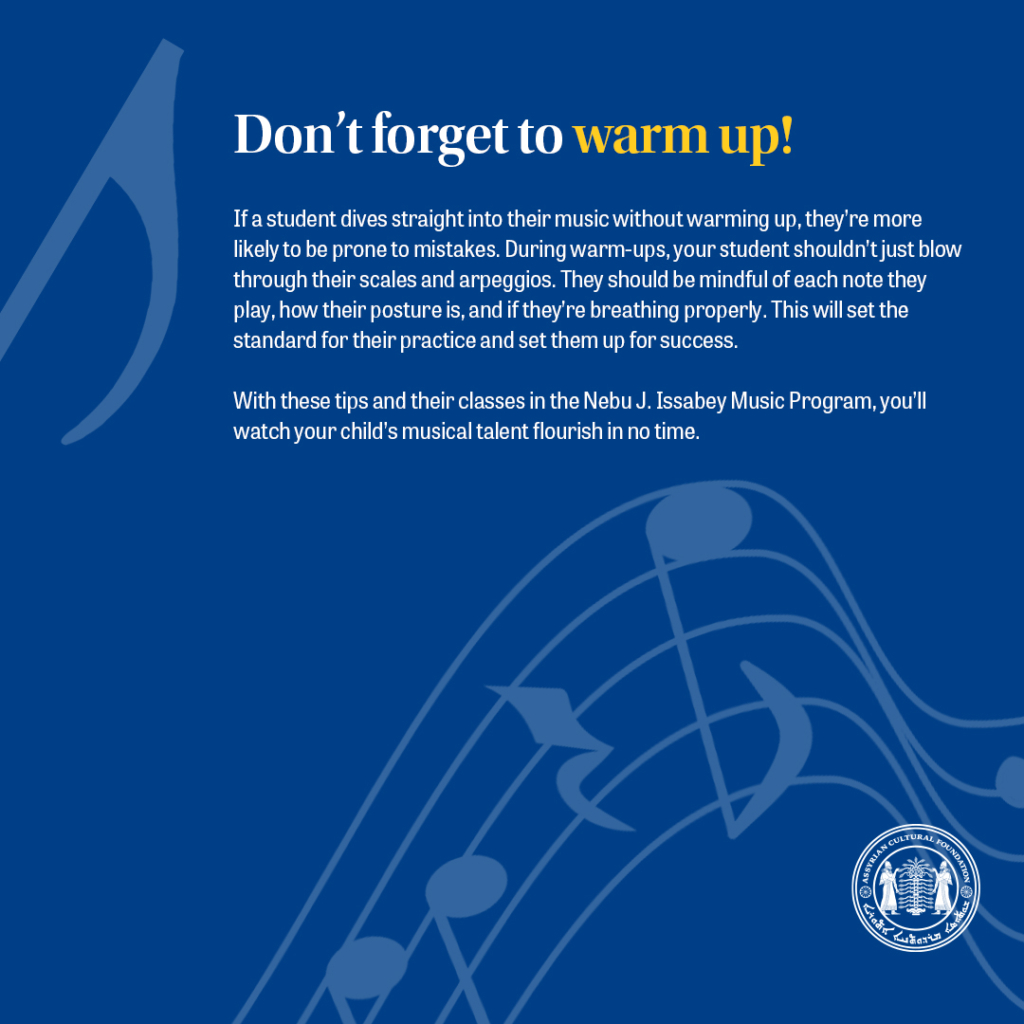
Don’t forget to warm up!
If a student dives straight into their music without warming up, they’re more likely to be prone to mistakes. During warm-ups, your student shouldn’t just blow through their scales and arpeggios. They should be mindful of each note they play, how their posture is, and if they’re breathing properly. This will set the standard for their practice and set them up for success.
With these tips and their classes in the Nebu J. Issabey Music Program, you’ll watch your child’s musical talent flourish in no time.
